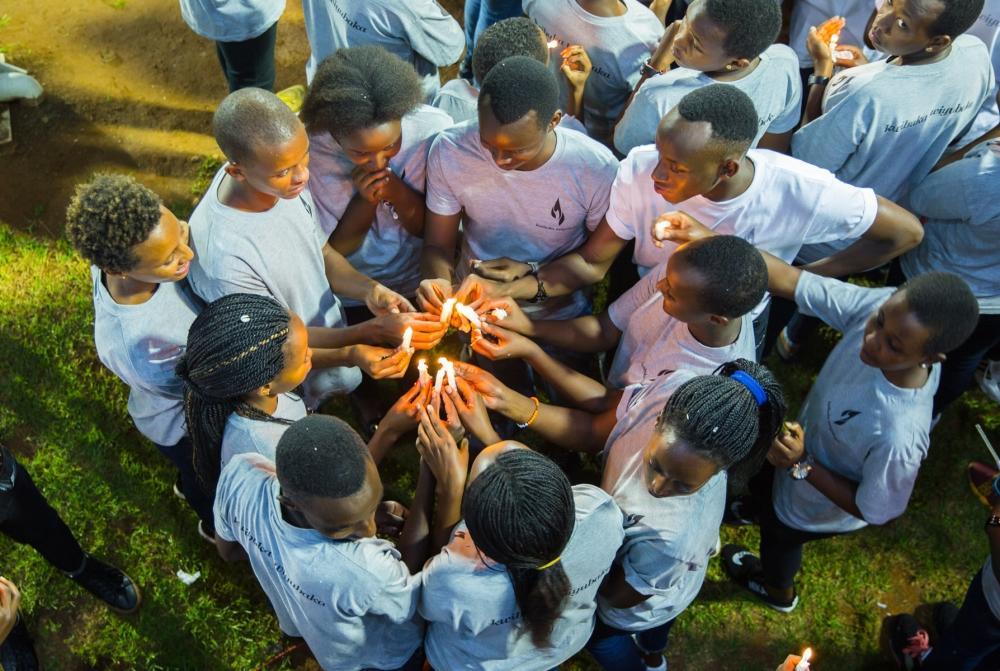Nelson Gashagaza
Africa-Press – Rwanda. The 31st commemoration of the 1994 genocide against the Tutsi (Kwibuka31) marks a significant generational shift. For survivors who endured the Genocide as children, the passage of time has brought some into parenthood.
This transition carries a unique weight; generational trauma casts a long shadow, making parenting itself a challenge. Their children, now grown, must grapple with the profound and enduring consequences of the genocide, including the absence of grandparents and extended family.
Today, survivors who lived the traumatic experiences as children to their own parents are experiencing it again as parents of their own children. It is a never-ending cycle of painful memories. This reality serves as a constant reminder that the impact of genocide reverberates through generations, forever altering all aspects of survivors’ lives, including the mundane.
Parenting, already a daunting task, presents unique challenges for survivors. Their children don’t symbolize just progeny but vessels that carry hope, embodying resilience and the restoration of humanity. These children represent a defiance of the dehumanization sought by the perpetrators. As they mature, they confront the pain of their family’s past and embark on a journey of healing, carrying the weight of their parents’ experiences.
Where some nations and politicians view remembrance as merely a diplomatic gesture, rather than a moral imperative, survivors are haunted by the fear of failing to protect their children. The echoes of their parents’ helplessness in the face of unimaginable violence resonate deeply. The indifference of the international community to the current regional crisis—where perpetrators and deniers are given space, hate speech and discrimination are excused, people are hunted and killed for being Tutsi, and the 1994 Genocide is denied and trivialized—amplifies their anxieties, forcing them to confront the possibility of history repeating itself.
These nations and politicians, who accuse Rwanda of “weaponizing” the memory of the genocide–for example, like we have seen French parliamentarians inverting roles by calling Genocide victims today’s killers–have no qualms about orchestrating televised Remembrance Days to commemorate the end of World War I. We, Rwandans, simply reject the notion that only certain individuals or a race are deserving of public grief and remembrance. We argue that the very act of remembering the 1994 genocide against the Tutsi and its historical context brings awareness and clarity to the crisis in Eastern DRC, making it relevant to our times. Remembrance matters for what it tells us about the past and the present.
Kwibuka31 ushers in a new generation, one that ideally would be shielded from the horrors of hate speech and genocidal ideologies. This new generation carries the responsibility of remembrance, confronting a world that actively undermines and distorts the truth.
The world’s persistent capacity for cruelty serves as a sobering reminder. Despite this, we have hope that this new generation is equipped with the tools to resist division and hatred and will continue to forge a different path that protects our social fabric.
The new generation’s mobilization on social media, responding, educating, and eviscerating harmful narratives surrounding the current conflict in Eastern DRC and their impact on Rwanda is evidence of this. The journey continues, and the new generation brings renewed energy to the fight of keeping the memory alive.
As the older generation of survivors, we can only promise unwavering protection and support to the next generation, aiming to preserve the memory of our shared experiences without passing on the trauma.
This approach will equip them to confront violence and oppression while upholding the legacy of dignity that our resilience represents. Silence is not an option.
Above all, we believe in the young people’s capacity to choose hope over hatred, to respond to animosity with compassion and empathy, to stand firm against divisions, and to always question external negative alliances. This is the essence of Kwibuka — a commitment to renewal.
Source: The New Times
For More News And Analysis About Rwanda Follow Africa-Press






